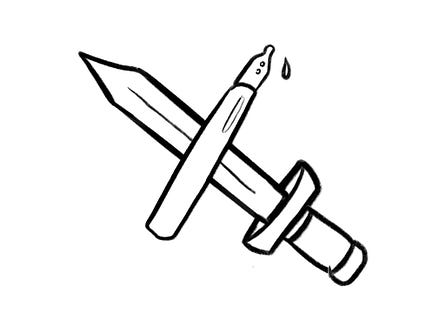Journalism roots out government corruption, it brings perpetrators to justice and it sparks social and political movements. When it comes to the treatment of its own workers, however, its own failures are the stuff of national headlines and yet they go unreported. As freelance journalists, doing our work routinely means experiencing overdue invoices, finding ourselves acting as de facto creditors and battling with bureaucratic red-tape when getting paid. If journalism is about holding power to account, surely it’s time it addresses the power imbalance within the industry itself?
A parliamentary committee said as much in a new report about the future of the media. The House of Lord’s report, titled Breaking News? The Future of UK Journalism (and to which I gave evidence), recommends addressing the difficulties freelance journalists face relating to unfair payment practices.
The report comes amid of flurry of industry bodies calling for radical reform to the treatment of freelancers. The National Union of Journalists’ latest major campaign asks for written contracts and prompt payment, while a consortium of unions have called for the creation of a freelance commissioner.
The Breaking News reports’ authors wrote, “We are concerned by the challenges freelance journalists face in dealing with news organisations, in which there is usually a significant imbalance of power,” and recommended the government address the issues of late payment, payment on publication and kill fees.
While I’m thrilled to see freelancers mentioned in a report about the future of journalism, I see no reason for the media to wait until the government or unions forces its hand to take action. It’s time the media turned inwards and fixed its own unjust payment structures that hamper freelancers from performing our jobs.
In the US, this is already happening. Just this week, the investigative online news site, The Intercept, published a pioneering commitment to transparency with its freelancers. Produced in cooperation with the National Writers Union, the principles include a commitment to timely payment and written contracts. Crucially, it was written in collaboration with the publication’s own freelancers. The Intercept undertook the seemingly radical task of asking their freelancers to how they can work better with them. I’d like to see more outlets follow suit.
Freelancing is hard in any industry, but there are some quirks within journalism that make doing our jobs impossible. Payment on publication, kill fees and copyright land grabs create unnecessary red tape, making our jobs needlessly difficult and forcing many out of the industry. At the same time, journalism is an industry disproportionately reliant on freelance workers.
I challenge an editor to find a piece of journalism that has not passed through the hands of a freelancer in its life cycle. Be that a local fixer on a zero-hours contract, a writer paid on publication or a sub-editor on a permalance contract. If we can’t create a functioning workplace in which getting paid fairly for the work you do is a given, how can we expect a diverse, robust and sustainable media to flourish?
The pandemic has disseminated the media. Over 60 local newsrooms in the States have closed. There have been over 2,000 job cuts across UK news outlets. Venture capital-backed outlets like the Outline have outright folded, while digital publications like Buzzfeed and HuffPost have merged. I myself started freelancing because I lost my job in a round of media layoffs in 2017 (the great pivot to video, if you recall).
While freelancing did wonders for my career, the mechanics of getting paid for my labour shocked me. It led me to start campaigning for the better treatment of freelancers. After the pioneering digital publication, The Pool, closed in 2019 and left scores of freelancers out of pocket, I wrote an open letter to media bosses, asking them to pay their freelances fairer, better and faster. Over 1000 journalists signed that letter and I’ve since given evidence and advised industry bodies about how they can improve the situation. The harsh reality, however, is that nothing material has changed.
If anything, things have only become worse in the wake of the pandemic. A million freelancers have been forced into debt as a result of the pandemic, while those who lost their jobs have been forced into precarious self-employment. In the UK, freelance journalists who are on PAYE contracts – meaning they’re taxed like employees, minus the benefits – fell between the cracks and didn’t qualify for any government support. Efforts from grassroots campaigns such as #ExcludedUK and #ForgottenPAYE have made significant headway in raising awareness but the government is yet to listen to their urgent calls.
If we want a free press, we must ensure freelance journalists are paid fairly. So, let’s be solutions-orientated just for a moment. What would ending payment on publication actually look like? It’s not that hard to imagine. Pay half the fee upfront, upon commission. The freelancer would sign an electronic contract with all the terms laid out that triggers an automatic payment. Then, the remained of the fee would be paid upon completion of the work.
The technology exists to facilitate this process; companies like Contently already use it. My solution would also kill two birds with one stone – payment would be prompt and there would be no need to deal with convoluted payment systems. This isn’t radical. Journalism has solved far bigger problems than a simple payment issue for its own journalists.


